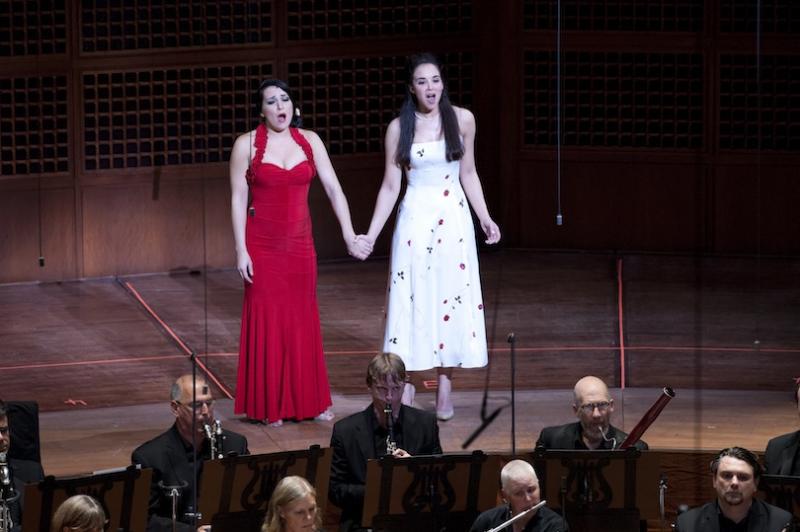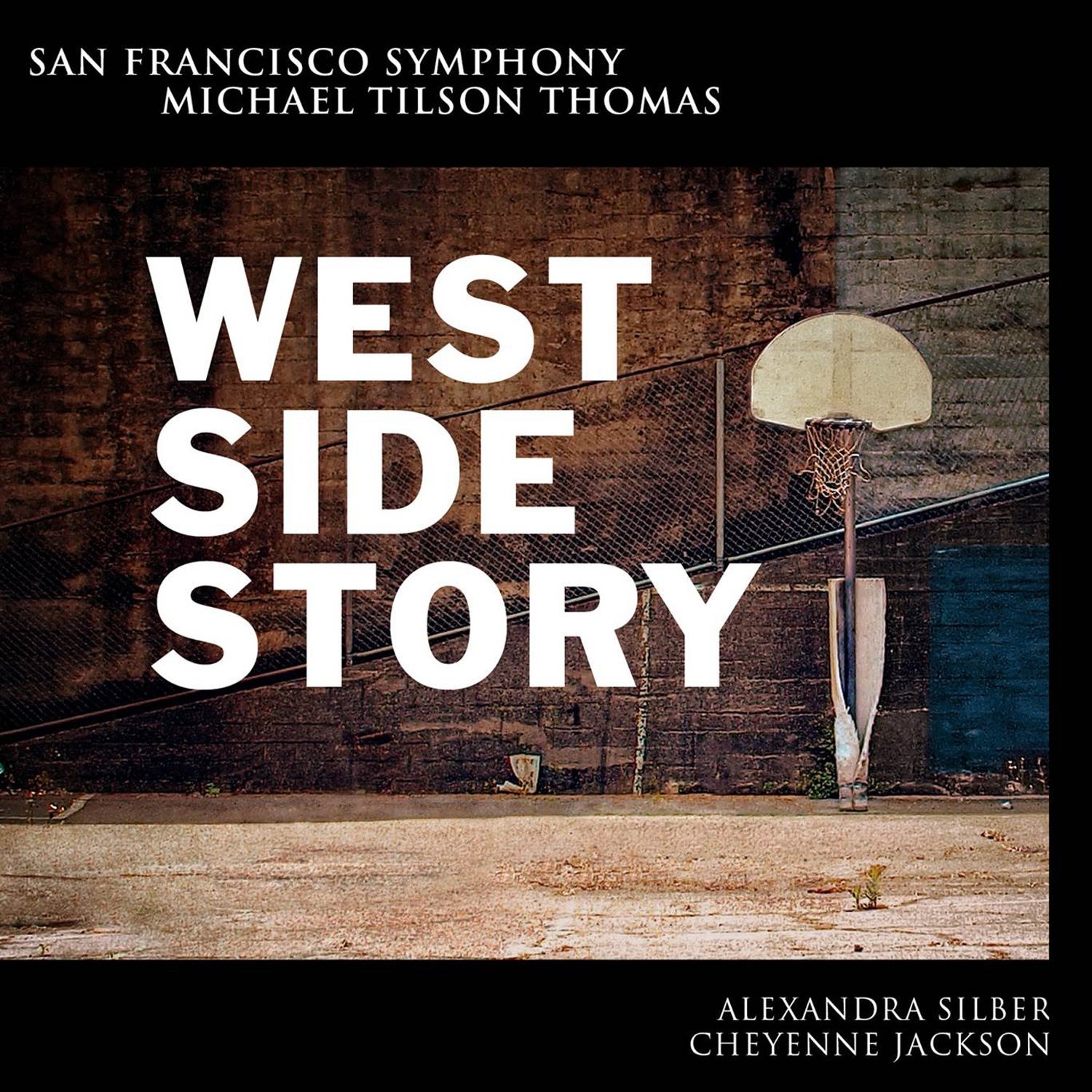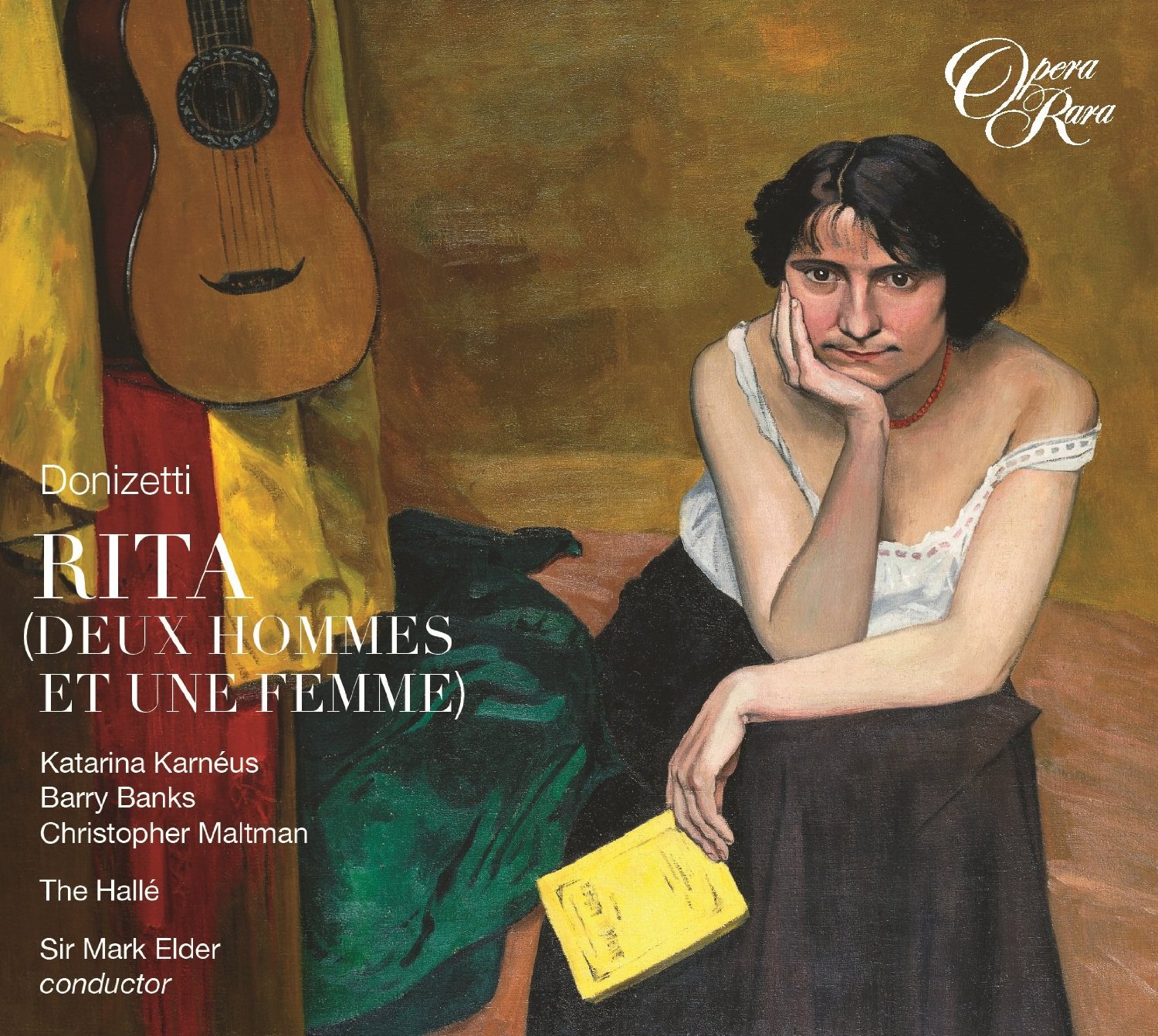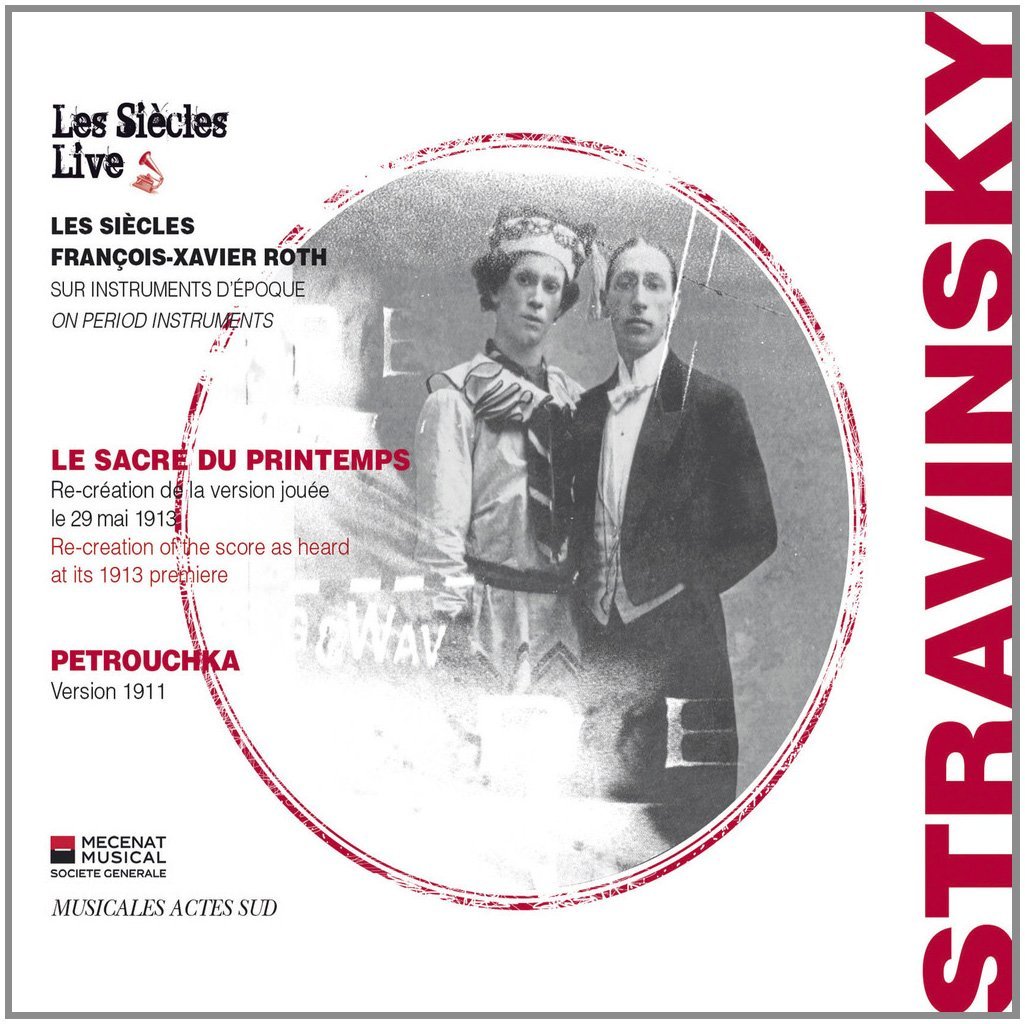Classical CDs Weekly: Bernstein, Donizetti, Stravinsky | reviews, news & interviews
Classical CDs Weekly: Bernstein, Donizetti, Stravinsky
Classical CDs Weekly: Bernstein, Donizetti, Stravinsky
A compact comic opera, revelatory performances of two ballet scores, and the most sophisticated of musicals gets the recording it deserves


Bernstein's West Side Story has been patchily served on disc. The original cast version has the freshest vocals but is heavily cut. The film soundtrack reordered the songs, with Sondheim's lyrics softened. Michael Tilson Thomas's new, live San Francisco version offers the best of all worlds. This two-disc set presents the show virtually complete. It's well sung and the playing is magnificent. Sid Ramin and Irv Kostal orchestrated the show from Bernstein's piano score, and this performance makes one marvel at their work – West Side Story's sound world is unique. Tilson Thomas uses the original scoring, only adding a few extra strings. This could be the best pit band in recorded history. Think of those brazen, screaming trumpets which introduce The Dance at the Gym, or the nagging ostinati which open the Act 2 ballet. There's a wonderful few minutes before the show's close, when a scratchy jukebox reprise of the Mambo segues into the Taunting Scene. America's ebullient rhythms are stamped on, defaced. And the show's disquieting, discordant final bars, cheekily lifted from Strauss's Zarathustra. This has to be Bernstein's greatest achievement - taut, witty, vibrant and emotionally affecting from start to finish.
His overblown, operatic 1985 recording on DG is a colossal misfire. Tilson Thomas states in the notes to this set that he wanted instead to use singing actors. “That's who West Side Story was written for. I wanted to take it back in that direction, with artists who sounded idiomatic.” He succeeds. Cheyenne Jackson and Alexandra Silber suceed as Tony and Maria. Something's Coming is electrifying, and the pair's duets are convincing. Jessica Vosk's Anita is nicely characterised, sparring effectively with Juliana Hansen's Rosalia in America. A Boy Like That's verismo isn't underplayed. Julia Bullock's Somewhere is simple, pure and unaffected. The Jet Song and Officer Krupke are pin-sharp, despite the chorus of male voices sounding a tad middle-aged. A superb set – handsomely presented and very well recorded.
Opera Rara's latest exhumation is this obscure Donizetti one-acter, the only work by this composer to have been premiered after his death. Written in the early 1840s, contractual and health issues conspired against Rita. The score was inherited by Donizetti's brothers, and after a jury had been assembled to verify the opera's authenticity, it was produced in Paris in 1860, complete with alterations made to Gustave Vaëz's libretto. This new recording uses the original French text. Perhaps it's best not to dwell too much on the unsavoury plot, concerning two unappetising men competing to win the heart of a girl – the twist being that neither of them really wants, or deserves her. On the plus side, Donizetti's music is unfailingly charming, and it's hard to imagine the piece sounding better than it does here. Mark Elder and a slimmed-down Hallé Orchestra accompany in some style.
Katarina Karnéus's feisty Rita is beyond praise – a superb vocal actress, alert to every nuance. She's frequently required to follow very specific directions, singing forcefully, ironically, or sweetly, and succeeds each time. She's well-matched with Barry Banks's weedy Pepé and Christopher Maltman's arrogant, cocksure Gasparo. There are so many choice moments – generally the ensemble numbers where each character reveals what they're really thinking. There's a sublime, very funny trio near the close, after Gasparo has pretended to have lost the use of an arm. Don't ask why. Diction is excellent, so anyone with a decent grasp of French will be able to follow the onstage shenanigans with ease. Opera Rara's booklet is a joy to read – what a pleasure to find a CD libretto which you can read without recourse to a magnifying glass.
François-Xavier Roth's intention here was to recreate the sounds heard at The Rite of Spring's first performance in May 1913. Stravinsky's ballet received its final revision in 1967, and Roth's research involved looking at the original manuscript, along with conductor Pierre Monteux's annotated score from the 1920s. Spotting the differences is made more complicated by the very different sounds made by a crack period-instrument orchestra. For a live performance, this is astonishingly assured playing. And there's an irresistible transparency and clarity to the textures. Brass and percussion are always audible, but never drown out everything else. The offbeat horn chords in Danse des adolescents are a poke in the ribs, not a kick in the face. The very French bassoon sound suits the score to perfection. Plucked strings near the close of the Danse Sacrale are a surprise, and the final flourish carries real weight.
Stravinsky's 1911 version of Petrushka is unfairly neglected, ignored in favour of the leaner, sharper 1947 revision. The original's warmer, less brittle colours are seductive, relating the work more strongly to the 19th century Russian tradition. Gut strings sound very different, and Jean Sugitani's brilliant piano solos are played on an appealingly mellow 1892 Pleyel instrument. None of which matter if Roth's interpretation wasn't up to snuff. It is – this is a vivid, dramatic and entertaining performance. The two central tableaux are claustrophobic, and the fourth scene's dance sequence is pure joy, making the disquieting coda more of a shock. This disc is much more than a curio for Stravinskyphiles – it's essential listening.
Explore topics
Share this article
The future of Arts Journalism
You can stop theartsdesk.com closing!
We urgently need financing to survive. Our fundraising drive has thus far raised £49,000 but we need to reach £100,000 or we will be forced to close. Please contribute here: https://gofund.me/c3f6033d
And if you can forward this information to anyone who might assist, we’d be grateful.

Subscribe to theartsdesk.com
Thank you for continuing to read our work on theartsdesk.com. For unlimited access to every article in its entirety, including our archive of more than 15,000 pieces, we're asking for £5 per month or £40 per year. We feel it's a very good deal, and hope you do too.
To take a subscription now simply click here.
And if you're looking for that extra gift for a friend or family member, why not treat them to a theartsdesk.com gift subscription?
more Classical music
 theartsdesk at the Three Choirs Festival - Passion in the Cathedral
Cantatas new and old, slate quarries to Calvary
theartsdesk at the Three Choirs Festival - Passion in the Cathedral
Cantatas new and old, slate quarries to Calvary
 BBC Proms: Estonian Philharmonic Chamber Choir, Kaljuste review - Arvo Pärt 90th birthday tribute
Stillness and contemplation characterise this well sung late-nighter
BBC Proms: Estonian Philharmonic Chamber Choir, Kaljuste review - Arvo Pärt 90th birthday tribute
Stillness and contemplation characterise this well sung late-nighter
 BBC Proms: Kholodenko, BBCNOW, Otaka review - exhilarating Lutosławski, underwhelming Rachmaninov
Polish composers to the fore in veteran conductor’s farewell
BBC Proms: Kholodenko, BBCNOW, Otaka review - exhilarating Lutosławski, underwhelming Rachmaninov
Polish composers to the fore in veteran conductor’s farewell
 theartsdesk at the Pärnu Music Festival 2025 - Arvo Pärt at 90 flanked by lightness and warmth
Paavo Järvi’s Estonian Festival Orchestra still casts its familiar spell
theartsdesk at the Pärnu Music Festival 2025 - Arvo Pärt at 90 flanked by lightness and warmth
Paavo Järvi’s Estonian Festival Orchestra still casts its familiar spell
 BBC Proms: Batsashvili, BBC Scottish Symphony Orchestra, Ryan Wigglesworth review - grief and glory
Subdued Mozart yields to blazing Bruckner
BBC Proms: Batsashvili, BBC Scottish Symphony Orchestra, Ryan Wigglesworth review - grief and glory
Subdued Mozart yields to blazing Bruckner
 Classical CDs: Hens, Hamburg and handmaids
An unsung French conductor boxed up, plus Argentinian string quartets and baroque keyboard music
Classical CDs: Hens, Hamburg and handmaids
An unsung French conductor boxed up, plus Argentinian string quartets and baroque keyboard music
 BBC Proms: McCarthy, Bournemouth SO, Wigglesworth review - spring-heeled variety
A Ravel concerto and a Walton symphony with depth but huge entertainment value
BBC Proms: McCarthy, Bournemouth SO, Wigglesworth review - spring-heeled variety
A Ravel concerto and a Walton symphony with depth but huge entertainment value
 BBC Proms: First Night, Batiashvili, BBCSO, Oramo review - glorious Vaughan Williams
Spirited festival opener is crowned with little-heard choral epic
BBC Proms: First Night, Batiashvili, BBCSO, Oramo review - glorious Vaughan Williams
Spirited festival opener is crowned with little-heard choral epic
 Interview: Quinteto Astor Piazzolla on playing in London and why Mick Jagger's a fan
Music Director Julián Vat and pianist Matias Feigin compare notes on Piazzolla
Interview: Quinteto Astor Piazzolla on playing in London and why Mick Jagger's a fan
Music Director Julián Vat and pianist Matias Feigin compare notes on Piazzolla
 Classical CDs: Bells, birdsong and braggadocio
British contemporary music, percussive piano concertos and a talented baritone sings Mozart
Classical CDs: Bells, birdsong and braggadocio
British contemporary music, percussive piano concertos and a talented baritone sings Mozart
 Siglo de Oro, Wigmore Hall review - electronic Lamentations and Trojan tragedy
Committed and intense performance of a newly-commissioned oratorio
Siglo de Oro, Wigmore Hall review - electronic Lamentations and Trojan tragedy
Committed and intense performance of a newly-commissioned oratorio

Add comment